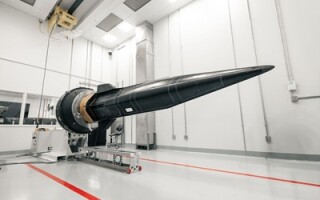DARPA research furthers study into decision-making
NewsMay 22, 2017

PALO ALTO, Calif. Stanford University researchers funded by the Defense Advanced Research Projects Agency (DARPA) Neuro Function, Activity, Structure, and Technology (Neuro-FAST) program have developed new optical imaging and analysis techniques that have provided insight into how the mammalian brain coordinates neural activity to complete voluntary behaviors.
The findings of the Stanford team, made in collaboration with researchers at the California Institute of Technology, help to advance DARPA’s goal of building a knowledge base and toolkit with which the neurotechnology community can accelerate understanding of brain structure and function, with the goal of building neural-interface technologies for service members.
In these experiments -- detailed recently in the journal Neuron -- transgenic mice learned to lick for water in the presence of a particular odor or refrain from licking in the presence of a second odor to avoid a puff of air; such behavior required the animals to integrate immediate stimuli to rapidly and flexibly select and perform specific actions that helped them achieve the particular goal of receiving water.
The experiments revealed that while neural circuits and different cell types distributed across much of the neocortex play a part in even the simplest adaptive behavior, they also confirmed the hypothesis that the prefrontal cortex plays a key role in coordinating the planning and execution of such behaviors, thereby broadcasting the animal’s behavioral state to neurons throughout the brain.
Justin Sanchez, DARPA program manager, said that although this research is just a start, it does begin to teach us how the brain processes and executes goal-directed behaviors in higher-order species. "DARPA has a long-term goal of developing systems to help service members better manage the sophisticated systems and complex scenarios that increasingly define modern military service. Neuro-FAST aims to unlock one piece of that puzzle by giving us the knowledge and tools to begin making sense of neural circuitry and coding.”






